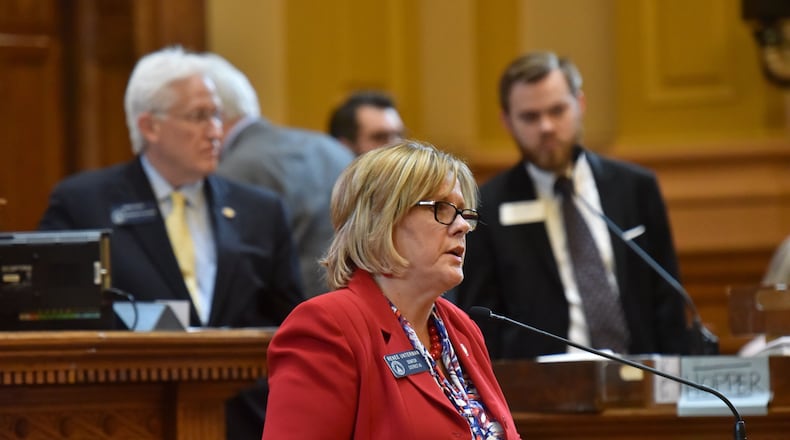The Georgia Senate on Friday voted to ban the practice of shackling pregnant inmates and placing them in solitary confinement after giving birth.
The Senate approved the bill 52-1. Cataula Republican state Sen. Randy Robertson, a former law enforcement officer, voted against the proposal.
House Health and Human Services Chairwoman Sharon Cooper, R-Marietta, said she introduced House Bill 345 to give pregnant inmates some dignity.
“To have to be shackled with chains around their ankles, wrists and waist, even when they’re in the delivery room — it’s humiliating,” Cooper said during a public hearing on the measure last week.
Live: Use AJC tracker to follow Georgia bills
The legislation would also prohibit corrections staff from asking pregnant women to squat and cough during searches. All vaginal exams would have to be done by a licensed medical professional.
While officials from the Georgia Department of Corrections and a representative for the state’s sheriffs departments said neither group has a policy of shackling, pregnant women told lawmakers it was done to them while they were incarcerated.
Pamela Winn said she was pregnant in 2008 and being held in a county jail in Lovejoy during her trial. She said she was routinely shackled as she was transferred to doctor appointments and court dates.
When she was about 20 weeks pregnant, she fell while she was shackled and miscarried.
“Then during my miscarriage was shackled to hospital bed,” Winn said. “Afterward, I was placed in solitary, which they say is for medical observation.”
The legislation now heads back to the House, which will have to approve changes that were made to the bill in the Senate.
State Sen. Renee Unterman, R-Buford, who ushered the legislation through the Senate, said she believes the two chambers will have to work out differences in a compromise committee. An agreement must be reached by the time the General Assembly adjourns next Tuesday for the bill to become law.
About the Author
Keep Reading
The Latest
Featured





